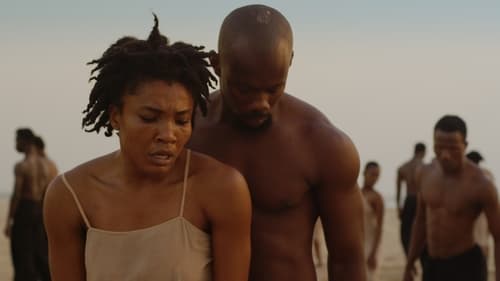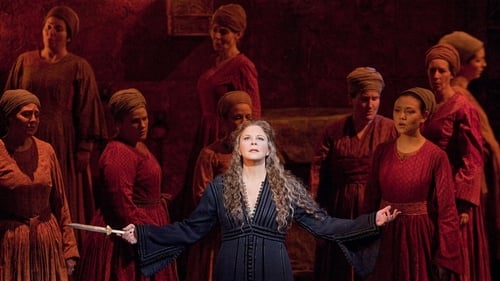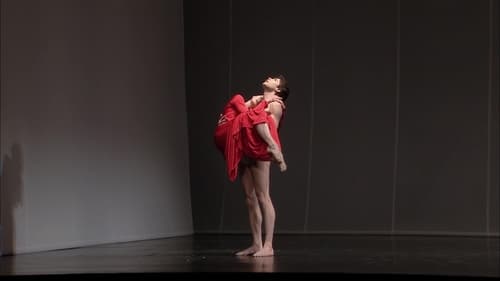Christoph Willibald Gluck
Nascimento : 1714-07-02, Erasbach, Germany
Morte : 1787-11-15

Music
Orfeo is so consumed with grief at the death of his beloved Euridice that the gods allow him to lead her back from the underworld - if he will not look at her on the way. But who can resist looking at a loved one?

Music
Two of Pina Bausch’s most famous works are rehearsed in Germany and Senegal, championing the choreographer’s legacy through a younger generation of dancers.

Music Producer

Music
At death’s door, a beloved king is doomed unless someone takes his place. So then his wife resolves to sacrifice herself to save him. Christoph Willibald Gluck composed his reform opera Alceste not once, but twice. In La Fenice’s production of the lesser-known original Italian version, director Pier Luigi Pizzi strips the action down to the bare emotional drama of Alceste’s sacrifice.

Music
Reimagine Christoph Willibald Gluck’s enduringly popular opera based on the famous Greek myth. From Lyric Opera of Chicago in collaboration with the Joffrey Ballet. Starring Dmitry Korchak, Andriana Chuchman and Lauren Snouffer.

Original Music Composer
Amour, the messenger of the gods, tells Orpheus that he may descend to the underworld and return with Eurydice. His singing has the power to appease the Furies and animate the blessed Shadows. Yet, his voice cannot reassure Eurydice who despairs of the feigned indifference of Orpheus, put to the test by Jupiter. Raphaël Pichon conducts the opera of operas and Aurélien Bory displays the giddiness of the mental and supernatural spaces traveled by Orpheus and beyond. Marianne Crebassa plays a new breeches role with Hélène Guilmette (Hélène in Le Timbre d’argent) and Lea Desandre (the title role in Alcione).

Original Music Composer
Juan Diego Flórez dazzled audiences and critics alike when he played the virtuoso role of Orphée in La Scala’s first ever staging of Gluck’s opera in its French version: “Juan Diego Flórez delivered a lesson in style. His tone is darker and his projection more self-effacing than in the past, but class is permanent. His agility and legato are utterly thrilling. The ovations were never-ending.” (Corriere della sera) The present release is a production by Royal Opera House, Covent Garden, London Recorded live at Teatro alla Scala, Milan, March 2018. Gluck’s Orpheo ed Euridice was first performed in 1762. It is the first of Gluck’s “reform” operas, in which he attempted to replace the abstruse plots and overly complex music of opera sera with a “noble simplicity” in both the music and the drama. The present production was staged by Hofesh Shechter and John Fulljames.

Original Music Composer
In order to fulfil the oracle’s prediction, Iphigénie must kill any stranger landing on the shores of Tauride. Alas, it is Oreste, Iphigénie’s own brother, who appears, having murdered their mother Clytemnestra in order to avenge the death of their father Agamemnon: such is the accursed lineage of the Atrides, condemned for generations to inflict death after death… Will this chain of hereditary bloodletting be perpetuated by Iphigénie? In Krzysztof Warlikowski’s stunning first production for the Paris Opera, the characters in the twilight of their existence are still haunted by their past.

Compositor
The myth of Orpheus and Eurydice tells of the impossible return to the land of the living by a woman who has been mortally wounded. The poet-musician Orpheus’s eventful journey in the world of shadows, searching for the one he loves and cannot let go, takes him to the Elysian Fields. This is an unexpected place of peaceful, composed of countryside and those in its thrall. It is here that Eurydice is now installed. During his journey Orpheus is thus introduced to a surprising reality: an enclave, a protected place, both near and yet inaccessible, disturbing, between life and death.

Music
Based on Gluck's masterpiece and performed entirely on location in and around the environs of the Baroque Theatre at the Cesky Krumlov Castle in the Czech Republic; it's an opera production designed specifically for the film with outstanding sets and production values. Countertenor Bejun Mehta sings the role of the torn main character and acts as an artistic advisor, making for an involving and impeccably performed opera.

Music
Leading Chopin interpreter Nelson Freire is the soloist in Chopin’s lyrical and brilliant Second Piano Concerto. On the podium the French conductor Lionel Bringuier makes his Proms debut conducting the BBC Symphony Orchestra and gives a sizzling performance of Roussel’s Symphony No.3 and of Ravel‘s score for the ballet Daphnis et Chloé – Suite No 2. ‘’The programme, otherwise entirely French, highlights everywhere this purity of style and gesture (which would give him more in common with Pierre Monteux than Charles Munch), which charms all who see and hear the young conductor: a clear and understandable beat, subtle control of balance and level, natural rhythm and pulse, and expression without embellishment.’’

Original Music Composer
Gluck’s gripping adaptation of the ancient Greek myth is vividly brought to life by a stellar cast in Stephen Wadsworth’s atmospheric production. Oreste is driven by the Furies to atone for killing his mother Clytemnestre. When he and his companion Pylade are shipwrecked on the island of Tauride, the king Thoas demands they be sacrificed. At the center of the drama is Iphigénie, Oreste’s long-lost sister. Forced to live among her enemies, she holds the lives of the captives in her hands—unaware that one of them is her brother. (Iphigénie en Tauride is performed in an adaptation of the 1779 Paris version edited by Gerhard Croll, by arrangement with Bärenreiter.)

Original Music Composer
Director and choreographer Mark Morris’s production of Gluck’s masterpiece updates the immortal story from its ancient Greek roots to the timeless present, where, he says, “the union of chorus and dancers feels inevitable and inseparable.” With costumes by Isaac Mizrahi and a set designed by Allen Moyer, this production surrounds the action with the superb Met chorus dressed as a crowd of historic characters who bear witness to the transformative power of love. Orfeo (Stephanie Blythe) is so consumed with grief at the death of his beloved Euridice (Danielle de Niese) that the gods (Heidi Grant Murphy as Amor) allow him to lead her back from the underworld—if he will not look at her on the way. Of course he can’t resist looking, but the gods are truly merciful.

Original Music Composer
The Ballet de l'Opera National de Paris mounted this production of the late Pina Bausch's dance-opera Orpheus und Eurydike, which Bausch had adapted from composer Christoph Willibald-Gluck and Ranieri de' Calzabigi's 1762 opera Orfeo ed Euridice. As the title suggests, it takes its basic narrative from the myth of Orpheus, and his courageous but ill-fated attempt to rescue his lover Eurydice (also known as Eurydike) from the jaws of the underworld. This particular production finds Yann Bridard dancing as Orpheus and Marie-Agnès Gillot dancing as Eurydike , with mezzo-soprano Maria-Riccarda Wesseling accompanying Bridard and soprano Julia Kleiter accompanying Wesseling. Pina Bausch did the choreography and stage direction, while Rolf Borzik designed the sets, costumes and lighting. The Balthasar-Neumann Ensemble & Choir, under the direction of Thomas Hengelbrock, lend musical accompaniment.

Original Music Composer
Live from Munich, October 2003. A husband laments the death of his wife. He follows her to the underworld and finds her there. But he is forbidden to look at her. He does it anyway! Has he now lost her forever? Or will the gods' hearts be moved by this loving, "human" glance? In 1762, Gluck put the quietus on the artificiality of baroque opera with this work - from then on the human element took center stage.

Writer
The eighteenth century German composer Christoph Willibald Gluck strove for the ideal of pairing poetry - in its purest form - with operatic score, an end he came closest to achieving with his 1779 opera Iphigeneia in Tauris (Iphigénie en Tauride). The story recounts the nearly fatal brother-sister relationship, its ultimate reconciliation, and the eventual Scythian-Greek truce as achieved by the intervening hand of the goddess Diana. The home video release Iphigenie en Tauride contains a film of a live performance of the work, as mounted by the Opernhaus Zurich in 2001. Claus Guth directs for the stage, with a cast that includes Juliette Galstian as Iphigenia, Rodney Gilfry as Orestes and Martina Janková as Diana. The Zurich Opera's Orchestra La Scintilla and the Chorus of the Opernhaus Zurich provide musical accompaniment.

Original Music Composer
Performed live at the Royal Opera House, Covent Garden, Gluck's opera in three acts is conducted by Hartmut Haenchen. Performers include Jochen Kowalski, Gillian Webster and Jeremy Budd, alongside the Royal Opera Chorus and Orchestra. When Orpheus mourns for his late wife Eurydice, the god Cupid offers him the chance to descend into the underworld and lead her back to the land of the living, on the condition that he does not look at her face. He sets out on his journey, but his path to the Elysian Fields is blocked by the fierce Furies.

Music
The opera-film, as opposed to Gluck's Vienna version, is a recollection of the ancient tragic Greek myth. Orpheus, who is able to defeat Hades with the power of art, is unable to conquer his own human defects. Amor is sympathetic to Orpheus' sufferings as he mourns his dead beloved, and lets him know the message sent by the Gods, namely that he may take her home from the underworld if he is capable of not looking at her.

Music
In visiting his ex-wife’s apartment a man learns that she plans to remarry a scientist named Valentin Shlyakhov. In his past, the man wrote a scathing letter about Shlyakhov which greatly impacted his career. Fearing that this information will come to light when his ex-wife marries Shlyakhov, the man insists that the wedding be called off. What follows is an intimate portrayal of the relationship between a man and a woman (who are never named), whose history as husband and wife plays out during a heated conversation.

Original Music Composer

Music
An artist takes a plaster cast of a nude male's body. Part of BFI collection "The Erotic Films of Peter de Rome."

















